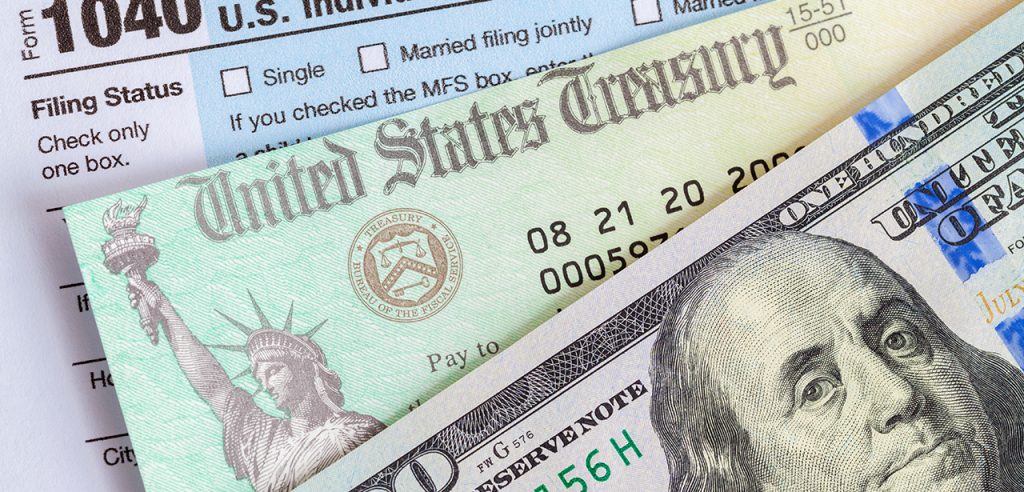Unemployment Benefits
The Act makes the first $10,200 in unemployment benefits tax-free in 2020 for taxpayers having adjusted gross income (AGI) of less than $150,000 per year. For those affected by this provision that have already filed their tax returns, an amended return will need to be filed. At this time, IRS has asked taxpayers to refrain from filing an amended return. The Act also extends the additional $300 in unemployment benefits through September 6, 2021.
The Act also applies the new eligibility rules for taxpayers who have received unemployment for years after 2020.
Advance Premium Tax Credit
Taxpayers who received an advance of their premium tax credit during the year, normally have to reconcile the amount they received on their tax return based on their actual household income. This reconciliation often results in a repayment of the excess of the prepayments. For years beginning with 2020, the Act no longer requires this repayment. If you have already filed your return for 2020 you will want to consult with your tax professional.
Economic Impact Payments
Included in the Act is another round of Economic Impact payments worth up to $1,400 per individual, plus $1,400 for each dependent. This round of stimulus payments comes with stricter income limits than the two prior payouts and includes payments for all dependents, including children in college and elderly relatives.
How do the income limitations work?
- Single individuals who have an AGI of up to $75,000 will receive the full payment of $1,400. Payment begins to phase out at $75,000 and is eliminated at $80,000.
- Couples who file jointly with a combined AGI of up to $150,000 qualify for $1,400 each. After $150,000 it phases out until it is eliminated at $160,000.
- For heads of household, the income threshold to receive the full payment is $112,500. It phases out at $120,000.
The Act uses 2020’s AGI to determine eligibility if a return has been filed. Otherwise, the IRS will use 2019’s AGI. For those not receiving the payment but who are eligible based on 2021 AGI, there will be a credit available on the 2021 tax return.
Child Tax Credits
The Act also includes changes to the Child Tax Credit (CTC) for 2021 and includes:
- The CTC increases to $3,600 per qualified child under age six and $3,000 per child up to age 17.
- The CTC is fully refundable.
- The income limitations are similar to that of the economic income payments. Phaseouts begin at AGI of $75,000 for single filers and $150,000 for joint filers. However, in this case higher-income families can still claim the $2,000 credit, subject to the prior phaseout rules.
- Details on the distribution of the CTC are still being worked out, but it is anticipated that the IRS will make monthly advance payments of 50% of the credit beginning in July. Any payments made in excess of the amounts calculated based on the 2021 tax return information will be required to be repaid with your 2021 return.
Dependent Care Credit
The Act increases the benefit received from the dependent care credit. The credit is generally equal to 20% of the first $3,000 of qualified childcare expenses for one child; $6,000 for two or more children. Making the maximum credits $600 and $1,200, respectively.
The Act increases the credit to 50% of the first $8,000 of qualified childcare expenses for one child; $16,000 for two or more children. Making the maximum credits $4,000 and $8,000, respectively. The credit is reduced gradually back to 20% for AGI from $125,000 to $185,000. The credit reduces to below 20% with an AGI of more than $400,000.
The credit for 2021 is refundable.
Earned Income Credit
The Act provides an increase in the amount of disqualified (investment) income a taxpayer could have, to $10,000, and still qualify for the earned income credit beginning after December 31, 2020. In determining the earned income credit for 2021, the Act allows taxpayers to elect to substitute their earned income from 2019 if that income is greater than their earned income in 2021. Certain age restrictions have been removed.
Student Loan Discharges
The Act excludes from gross income certain discharges of student loans after December 31, 2020 and before January 1, 2026.
If you have questions on how these changes will affect your income taxes for 2020 or 2021, please contact your AHP professional.
Any accounting, business, or tax advice contained in this communication, including attachments and enclosures, is not intended as a thorough analysis of specific issues, nor a substitute for a formal opinion, nor was it written to be used to avoid tax related penalties.
Author: Carrie L. Hindmon, CPA, CSEP



